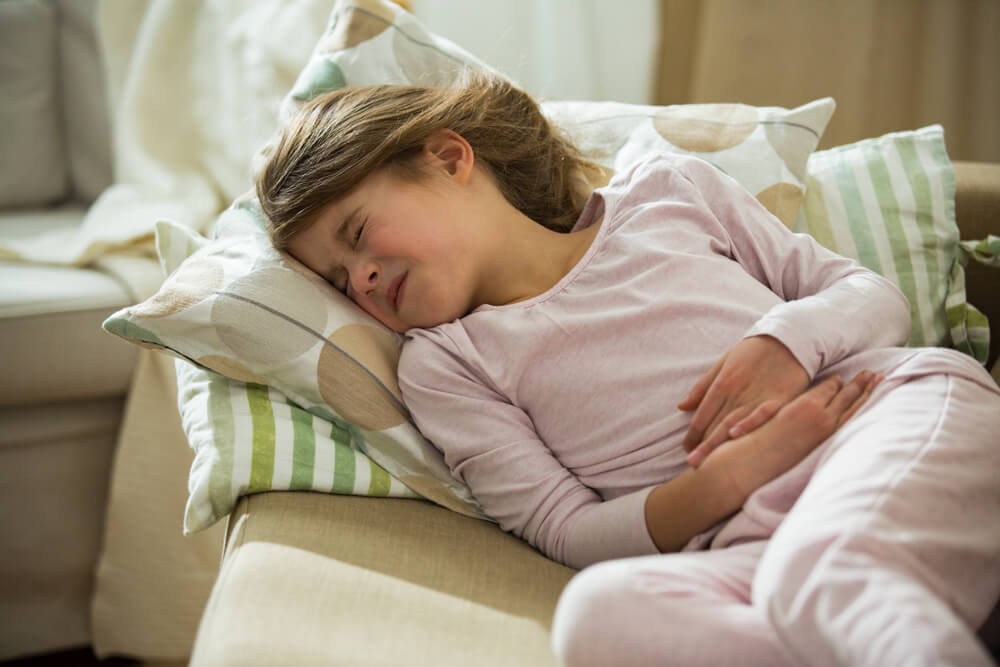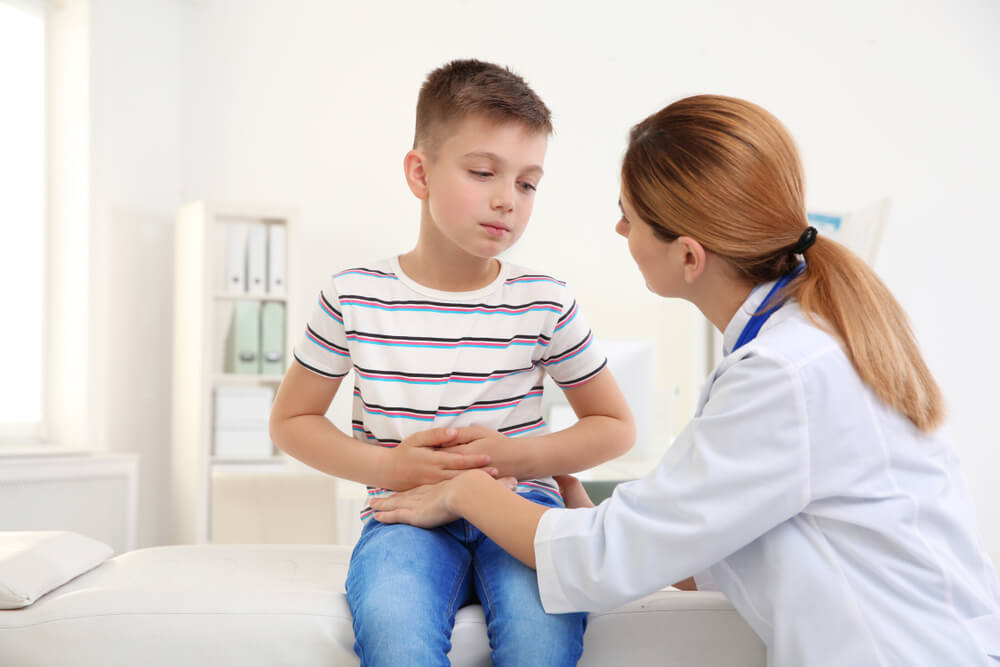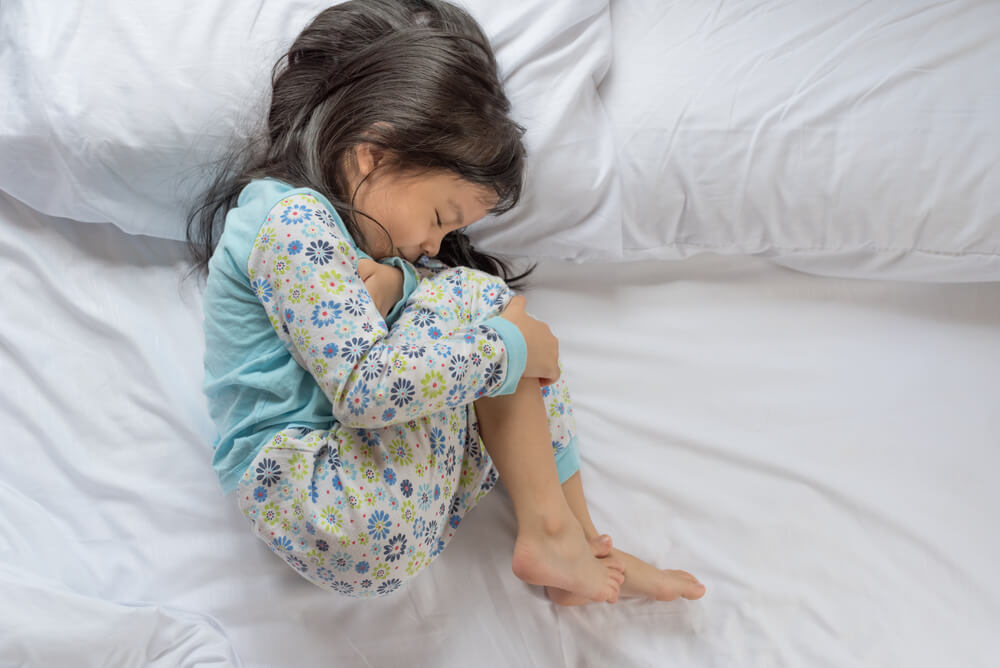Children’s stomach pain can mean anything, from indigestion to irritable bowel syndrome. That is why it is crucial to educate yourself on the common causes of stomach pain in kids and when to seek professional help. In this comprehensive article, you will learn about some of the most common reasons your child may be experiencing abdominal pain and how to relieve aches. You will also find helpful tips on when to reach out for medical assistance. When in doubt, we recommend consulting a pediatric care specialist for expert help. If your child’s symptoms do not resolve on their own and they worsen, it is best to talk to a medical professional.
So, what are the common causes of children’s stomach pain, and when is it a serious concern? Find out below.
What Can Cause Stomach Pain in Kids?
Stomach pain and abdominal aches are widespread among children of all ages. Children’s stomach pain can be caused by various things, including anxiety about an upcoming event, needing to use the toilet, overeating (or too little), or a stomach bug. Usually, stomach aches are one of the most common reasons why parents take children to the doctor. However, many of the causes of stomach pain in kids are not severe, and the symptoms resolve on their own. Here are some of the most common reasons why your child may experience abdominal pain:
- Constipation, irritable bowel, or colic
- Stomach bug or infection (such as bladder or kidney infections, gastroenteritis, etc.)
- Indigestion or other food-related issues such as food allergies
- Appendicitis, intussusception, or bowel obstruction (may cause sudden or acute pain)
- Anxiety or stress
- Functional abdominal pain or irritable bowel syndrome
- Period pain (some girls may experience pain before starting their menstrual cycles)
- Poisoning, such as smoking, eating soap, or spider bites
Some children experience occasional stomach aches, while others may deal with repeat attacks of pain. Although neither should be disregarded, the latter can be more concerning. For expert advice, we recommend specialists such as Ana Hernandez Puga MD, the best pediatrician in Miami.
In some cases, stomach pain in kids may be due to feeling anxious or worried about the people around them (or themselves). We suggest having a heart-to-heart conversation with your child about kindergarten, school, home, friends, or other potentially upsetting topics.
The cause of your child’s stomach pain can vary depending on where they are feeling the sensations. In the following sections, you will find a brief overview of the potential causes of stomach pain, depending on the location of the ache.
Right Side Pain

If your child feels pain in the lower right side of the abdomen, they may have appendicitis. This term refers to a severe medical emergency that can lead to sharp and sudden pain in the child’s lower right side of the stomach. Although right side pain does not have to hint at appendicitis, it might. In order to stay safe, we recommend checking in with your healthcare provider for guidance and accurate diagnosis.
Other common symptoms of appendicitis may include:
- Vomiting
- Diarrhea
- Appetite loss
- Constipation
- Nausea
- Fever
- Difficulties passing gass
Again, consult a medical expert immediately if your child complains about right side pain. If the condition is diagnosed early, the risk of severe complications and a ruptured appendix will be decreased.
Left Side Pain
Although right side pain may seem more alarming, left side pain may also require immediate medical attention. Namely, children complaining of left side stomach pain may have pancreatitis in some cases. However, in most cases, left side pain is caused by constipation. If you are still in doubt, talk to your child’s pediatrician.
Belly Button Pain
What is one of the most common complaints among children? It is none other than belly button pain. If your child is typically experiencing aches or pain around the belly button area, it is nothing serious. According to the experts, pain in this area may signal eating something that does not agree with the stomach or anxiety and stress.
If the child is experiencing belly button pain, you can try to:
- Offer them a glass of lukewarm water
- Encourage them to rest
- Ask them if they need to use the bathroom
- Read them a book or distract them with a game
Again, if the belly button pain does not resolve on its own (or the symptoms become more severe), talk to a doctor.
Upper Abdomen Pain
Indigestion is one of the most common causes of upper abdomen pain. Other signs of indigestion may include:
- Bloating
- Heartburn
- Burping
- Pain or aches in the middle section of the upper belly
- Nausea
Experts claim that indigestion typically happens after the child consumes a particular food item. You may want to be mindful of what your child ate so this unpleasant experience is avoided in the future.
However, gallstones may also cause aches in the upper right side of the abdomen. Although gallstones are rarer in children than in adults, obese kids and kids with certain medical conditions such as sickle cell disease are at high risk.
How Can I Help Relieve Stomach Pain in Kids?
Nothing is worse than when your child complains about stomach aches and pains, and you do not know what to do. Fortunately, here are some fool-proof ways to help your child with stomach-related issues. Before proceeding to the home remedies, make sure your child:
- Gets enough rest
- Passes gas
- Has a proper bowel movement
- Recovers from a stomach bug or virus
Typically, most stomach aches and pains resolve on their own without the need for medical help. Although there is no special treatment for an aching stomach, there are specific at-home remedies that may soothe abdominal pain. Here is what you can do to help alleviate stomach pain in kids:
- Offer acetaminophen or ibuprofen to relieve aches and pain (but consult with a healthcare professional before doing this)
- Use a heating pad to alleviate pain and cramps
- Offer soups or crackers
- Offer plenty of fluids to keep the child hydrated (unsweetened tea and plain water are best)
- Give the child a stool softener or encourage hydration
- Offer a probiotic supplement
When is Children’s Stomach Pain Serious?

Overall, stomach pain in children is common and usually harmless. Although the pain may feel sudden and sharp, it typically resolves on its own. However, if your child is displaying some of the following signs, seek out immediate medical assistance. The alarming symptoms include:
- Cough and fever
- Pain when peeing
- Blood in the stool
- Frequent constipation
- Recurring stomach aches without clear reasons
- Looking or acting ill
- Unexplained and rapid weight loss
- Sharp pain that prevents your child from sleeping or pain that is affecting everyday activities
The cause of the stomach pain may not always be apparent. Sometimes, the child’s doctor may want to perform tests such as:
- A urine test
- A stool sample
- Blood tests
- X-rays
- Other special tests
On the positive side, stomach aches and pains in children are often temporary and harmless. However, if you feel concerned, we are here to help. Our team of professionals will provide you with the best diagnosis and treatments possible. Give us a call today.




